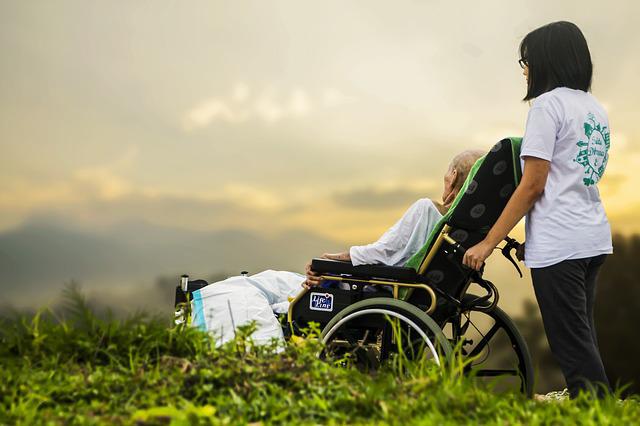
Atlas is partnering up with AARP to provide resources for caregivers. Some communities are unable to provide these resources, or raise awareness about them. Santa Barbara's work might not be utilized if Santa Barbara residents do not know of the resources. And how can we raise awareness? What can we do to make caregiving resources more easily accessible? We hope that more people will share this article and take advantage of the services.
Family caregivers struggle to provide quality care while balancing work and family responsibilities
Family caregivers provide substantial care for patients in our society. Even though this type of care is essential, society fails to acknowledge the value of family caregivers and to support them appropriately. Nursing interventions are important as they can recognize caregivers' efforts, give concrete instructions for specific care tasks, refer them to ongoing support, and even refer them to other services. Nursing interventions can prevent harm to patients and caregivers alike.
There are many reasons that family caregivers find it difficult to provide quality care while trying to balance work and family responsibilities. Family caregivers are often not paid and may require assistance in becoming safe volunteers. This will help family caregivers to better protect themselves as well as their loved ones. A professional may be needed to help them with their caregiving.

One of the challenges is financial sacrifice
The AARP released recent research about caregiver expenses that found nearly eight in ten caregivers have regular out-of–pocket costs. Hispanic/Latino caregivers are more likely to face high out-of-pocket expenses than those of African American caregivers. The organization launched a national campaign to support family caregivers in response to these findings and urged Congress to do more. The cost of caregiving is so high that medical expenses account for nearly 17 percent of all caregivers' spending.
Although unpaid leave is an excellent way to care for your family, it can make it difficult to work while caring for them. Many caregivers are forced into lower-paying positions or to work in a less responsible job. In the process, they may sacrifice their immediate income as well as their long-term economic status. Many caregivers also lose access to their retirement savings. There are many options to help ease the financial burden of caring for someone you love.
There are many resources available to assist you
Caregiving can be a daunting task and comes with many challenges. Finding resources, finding long-term care and meeting medical needs are just a few of these issues. There are many resources available to caregivers, from support groups and agencies to informational websites and organizations. AARP has information on caregiving. It also offers caregiver guides, checklists, and support groups. You can also receive one-on-one support to help caregivers cope with the caregiving responsibilities.
The AARP offers many resources for caregivers. The website also lists useful tools and websites. The AARP Family Caregiving site provides valuable information for caregivers about finances and how to balance life. The AARP Family Caregiving Hotline connects caregivers with local resources. You don't have to pay anything to use this service, which is available to all AARP members.

Caregivers of military veterans face unique challenges
Support services for caregivers can be a great way to relieve some of the stress and burden that comes with caring for veterans. For many families, the role of caring for a loved one is a defining moment in their life. Regardless of the type of care needed, veterans are often accompanied by a spouse or family member who helps to improve their lives. According to the RAND Corporation, a nonprofit that analyzes information related to the United States Armed Forces, military veteran caregivers face unique challenges.
Many caregivers serving in the military report more distress than others. Around 40% of caregivers after 9/11 have major depression. However, only 34% get treatment. These caregivers report significant physical and financial strain, and interfere with their own life. There is growing awareness about the benefits of caregiving support and military caregivers. This growing community offers caregiver support and programs to make caring for a loved one easier.